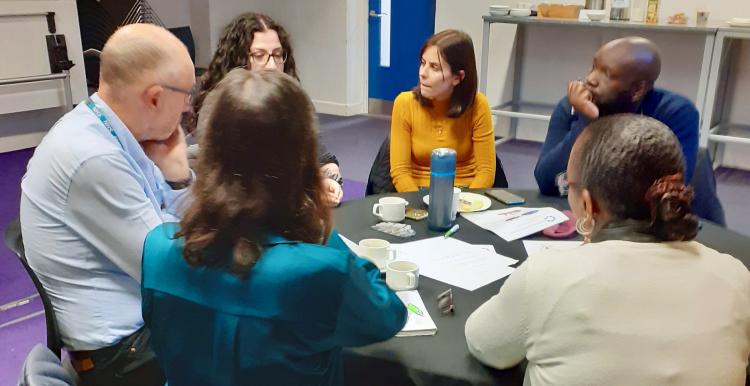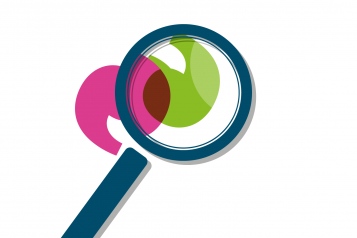Progressing Equality events - we’re helping services take forward steps

Participants discuss the progress they are making with their pledges during October’s Progressing Equality event
Our whole team at Nafsiyat has found it immensely valuable to participate in the Challenging Inequalities Project.
A little bit of background
Back in 2019, we interviewed 73 residents from migrant communities who were living with mental health issues to learn about their experiences of accessing support. We published our findings and shared them with the decision-makers responsible for mental health services in the borough.
One of the outcomes of our research was a change to existing commissioning structures. The All Age Mental Health Partnership Board is a group of stakeholders from various sectors that work together, discussing and recommending how money will be prioritised and invested to provide mental health support in Islington. Following the publication of our report, a subgroup was established to address inequalities in mental health service delivery.
Making pledges
In 2023, the All Age Mental Health Partnership Board and the Inequalities Subgroup members each made three pledges to increase their organisations' inclusiveness.
Pledges may reflect existing work to address inequality, or be new ideas. Pledges are useful tools as they encourage measurement, accountability, and reflection. The act of making pledges has helped participating organisations to think about inclusion in a bigger way.
Our Progressing Equality events
Healthwatch hosts two Progressing Equality events each year. These events bring together organisations that have made pledges. It’s an opportunity to take stock, to talk about progress made and challenges faced. We invite participants to identify where they would value input from the group. Ideas are exchanged and relationships are built.
We asked ourselves some challenging questions about our work with people with disabilities, with the LGBTQ+ community, and our work with people from collectivist cultures*, having set these areas as our pledges.The Progressing Equality events enabled us to take stock of where we were with our pledges and kept us on track. At the events, Healthwatch Islington expertly brought a wide range of key partners together and we were able to share good practice, ideas, and contacts which will prove vital as we ensure our pledges are fully met. We are a stronger organisation for having gone through this process and are much better informed about where we are and where we need to be in these specific areas of work.
*Collectivist cultures prioritise the needs and goals of the group as a whole over the needs and desires of each individual
A toolkit to help commissioners design inclusive services
This first edition of the toolkit focused on race and ethnicity. Islington Mind have published a second chapter in 2024 to support organisations to increase access and inclusivity for the LGBTQI+ community, guided by specialist services mostly operating in London. The Challenging Inequalities Self-Assessment Toolkit - LGBTQI+
Find out more
To learn more about the Challenging Inequalities Toolkit, the Progressing Equality events, and how to make pledges, email kay@healthwatchislington.co.uk


